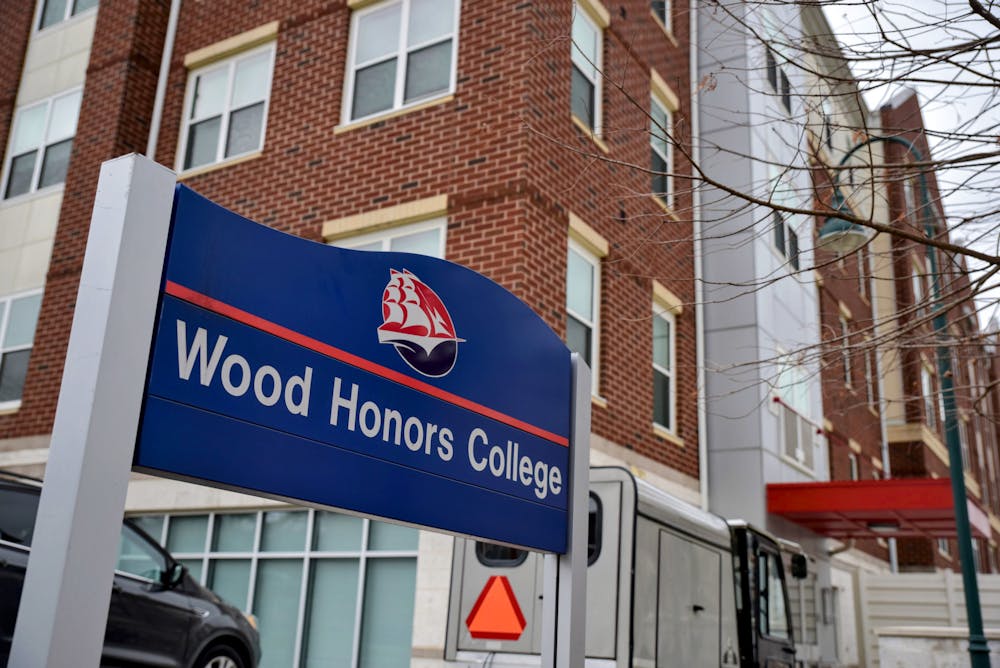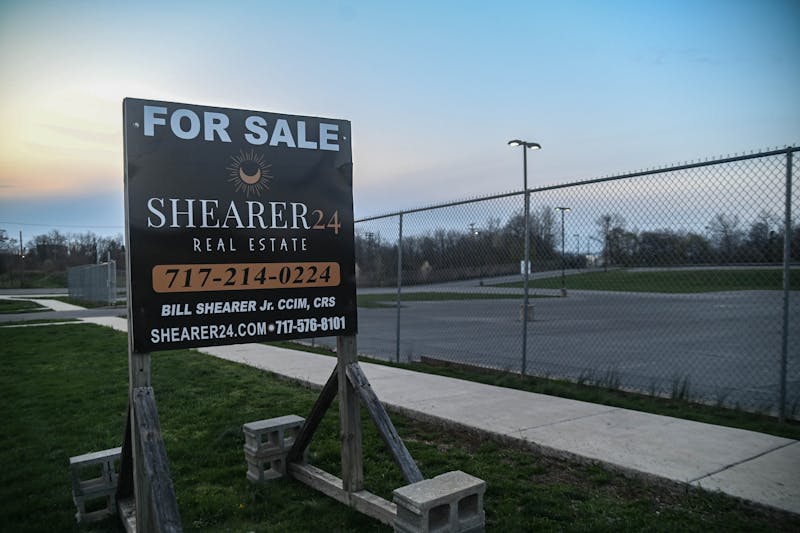Nothing about us without us — perhaps if you have had an introductory dive into learning about disability justice, you have heard this phrase. This forgotten mantra is the bare minimum disabled people ask for when it comes to disability policies.
Unfortunately, on the Shippensburg University campus, this simple sentiment could not be more disregarded. Now, you may see SU advertising its “accessible” academic buildings and inclusive DEI programs and wondering what I could possibly mean? Perhaps you see me in my power wheelchair zooming through the CUB to my next meeting and assume SU must be an accessible and equitable place.
The sheer presence of disabled people does not mean we are here because our needs are being met. However, so many of us, whether our disabilities can be seen or not, face an incredible amount of pushback from the very administration that is supposed to support us.
I had the opportunity to speak with SU President Charles Patterson earlier in the year. At the time, I did not want to bring up any specifics or be uncharitable to the administration. I decided to simply ask a basic question: what current efforts is Shippensburg University undergoing to work toward being more accessible? I was told outright — nothing.
The university’s only approach is to scramble to address issues as they arise. I found myself at an event later that week answering questions about accessibility resources and was asked the same question. What is our university doing? I found myself unfortunately echoing the words of the president as well as expressing how sorry I was that this was the case. I felt like nothing more than a cog in the machine at that moment.
Ever since my first year at SU, all I wanted was to be included and accepted. I found myself completely shut out from the very beginning. SU does not offer accessible housing to accommodate those with mobility aids. It is more than apparent the very few accessible rooms are only there to check off boxes. I could not even turn my chair around in these rooms. My wheelchair could not fit in the bathroom, and there would be no way for me to use the shower.
I asked if it would be possible to look at a larger style of suite, but I was told none of them were ADA compliant. Additionally, if you live on the first floor of a building there is an additional heavy door to actually access the hallway, and as you may have guessed, there is no push button to open it. All around campus you’ll find odd roundabout accessible routes or unreliable elevators. Multiple times, I have had to miss classes due to elevators breaking down. Luckily, my professors have been understanding and just as frustrated with the situation as I was.
I have spoken with many disabled students who have faced similar difficulties as well as different struggles I have been very taken aback by. One such case is a recent fight for accessibility in the Woods Honors College. There are many stipulations to be able to join and stay as a part of the honors program here at SU, with one of the requirements being community service. It has been brought to my knowledge that the majority of volunteering opportunities offered to students for these service hours involve physical labor. The hours and events are managed by the honors service committee. If alternate events are eligible to earn these hours the committee has not made it clear.
A group of students who are all part of the Honors College came together to try to form an accessibility committee to not only advise the service committee on how to offer accessible opportunities but help the Honors College as a whole work to become a more accessible place. Its main focus is on making spaces for honor students more accessible and addressing elitist and ableist attitudes within the program.
Recently, the Honors College executive leadership committee voted to deny the formation of an accessibility committee. Now I have been told multiple conflicting accounts of why this happened. When reached out for comment, since the committee members voted in private, it was stated there was no unified reason for the denial.
Through my role in student government, I was able to sit in on the ADA/504 Committee meeting this quarter. Allow me to give you a peek behind the curtain. Immediately, I could tell the majority were there just as a formality. None of them had examined inaccessibilities around them nor had anything to report. If I was not there to bring student concerns, the meeting would have been open and shut quite quickly.
I was near anger hearing housing and facilities had nothing to bring forward. This only cemented my disappointment in this institution. I am writing this opinion piece as a disabled student, not as a student government leader, although I do have the privilege of sitting in on these meetings. My own personal feedback as well as the concerns of other students I bring up feel secondary to the administration’s bottom line.
I do not want to be considered a voice for the voiceless. Many students stop choosing their voice long ago because they have grown tired. We are too exhausted to argue a perfect, logically impenetrable case for why we should receive a small amount of extra expended energy from our institution. One would think that a state university open to students of all walks of life would want the bare minimum of keeping students safe.
Did you know the current evacuation protocol for students with mobility issues is to shelter in place? If you cannot use the stairs for any reason, you are told to wait at the top of the stairwell, still and patient as alarms ring and panicked masses crowd down the stairs. Last year, I met with SU’s police chief at the time and was told that they could not get accessible evacuation equipment, like a sling or an evacuation chair that has tracks to slide down the stairs. I was told that it was too expensive and would be considered “medical equipment” so they could not legally use it. This is just simply not true. Even my small rural high school had evacuation equipment at stairwells, and teachers could use it to help students who needed it.
For all of these experiences of ableism, I find the throughline being ignorance. For someone to fix the issue they believe that would imply the admission of guilt. Of course, they would feel guilty and fear the optics of ableism existing in the first place. Admitting that there is a problem and doing something to fix it will always be the most equitable option than sweeping it under the rug and hoping you can go a few more years with the status quo. I do want to mention, none of the issues are due to the fault of the Office of Accessibility Resources (OAR). This office is a wonderful resource with understanding and accepting staff. However, OAR only has so much power on campus.
I firmly believe that the student body will always have the power to make big changes on campus. You may not be able to advocate directly to administration, but maybe you run a small club that could work to be more accessible and accepting. Perhaps you make art or have a class project that could be done on the topic of disability.
If our student body can make it known that disabled people belong here and are part of the community, that makes it more difficult for us to be silenced. We belong here. I want to thank the Slate for giving me the opportunity to write my honest thoughts and have an outlet to express them to the campus. Together we can do better, we will not be ignored.
Nothing about us without us.



The Slate welcomes thoughtful discussion on all of our stories, but please keep comments civil and on-topic. Read our full guidelines here.